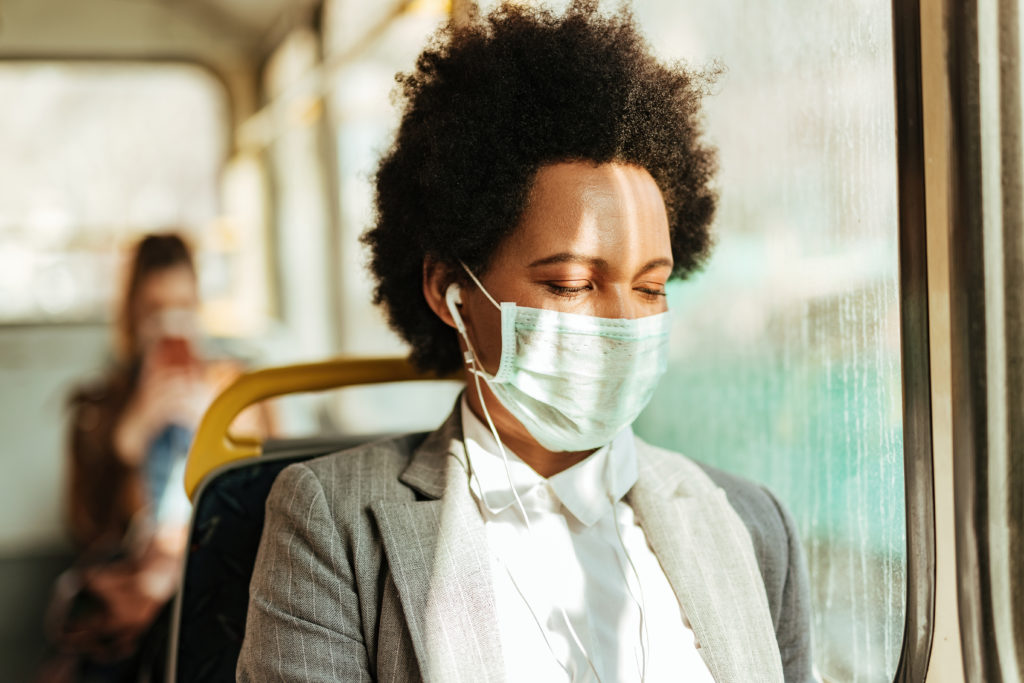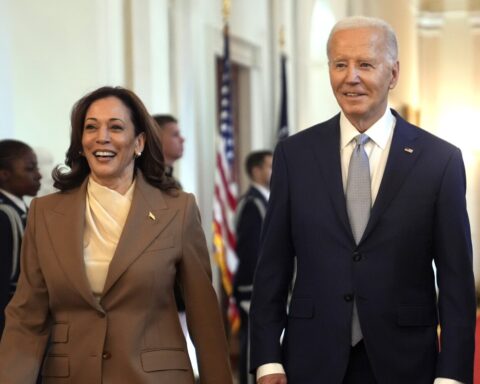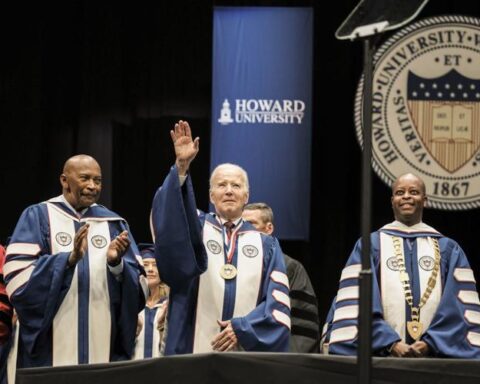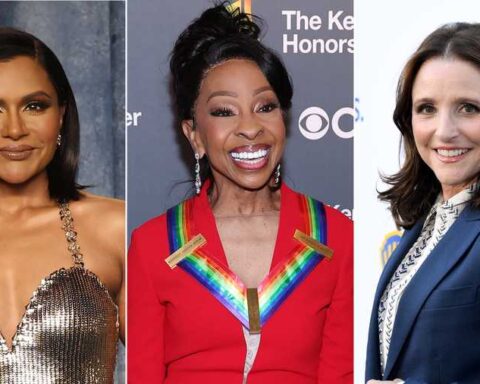America’s emerging limbo between a full-blown pandemic and a return to normal is throwing up new public health dilemmas that spark instant political fires — like a fresh round of grandstanding over mask wearing.
Top White House adviser Anita Dunn Sunday defended President Joe Biden over his continued use of a mask outdoors — even though the practice appears to conflict with new and relaxed administration guidelines for fully vaccinated citizens.
In comments that didn’t necessarily clarify the situation, Dunn told CNN’s Jake Tapper on “State of the Union” that “extra precautions” were being taken for the President and that mask wearing was “a matter of habit.”
Republicans, seeking to dent strong public approval ratings for Biden’s handling of the pandemic, have already accused him of whipping up stigma against people who refuse to wear masks, who include many conservatives. The Republican National Committee, for instance, blasted Biden for “breaking” US Centers for Disease Control and Prevention guidance, and the issue has become one of the latest culture war flashpoints for right-wing talk show hosts.
Republicans are seizing on the controversy over masks to bolster their wider narrative that Biden and Democrats are too politically correct and using the power of government to infringe on the freedoms of Americans — a conceit that works for them on taxes to guns and public health to climate change.
The exchanges suggest that safely dismantling the web of Covid-19 precautions will prove as contentious as implementing them was, proving that little is immune from politicization in a nation internally estranged over ideology.
Debates among political rivals and in the medical community and conversations among citizens about how to emerge from a year of isolation are almost certainly only the first of a series of arguments about how vaccinated and unvaccinated people can behave. The coming months will likely see a flurry of controversies including in the hospitality industry, cruising, education, aviation and those triggered by the mass return to work.
It’s not just political factions using the issue for partisan advantage — though that is happening as Covid-19 restrictions continue to straddle the quintessentially American tension between individual freedom and the reach of government. Medical experts are engaging in an intense debate over whether the CDC is being too cautious in the way it’s loosening mask guidance or is offering the public conflicting, confusing advice.
That medical debate is giving way to an escalating political debate as families struggle to assess their risks, look to leaders for advice and try to decide whether and how to travel, vacation and socialize in the surprisingly daunting process of resuming their pre-pandemic activities.
‘A patriotic responsibility’
The complications of exiting the pandemic — a process that no one currently in positions of power has ever experienced — explain why Biden’s success in getting more than 100 million Americans fully immunized doesn’t mean Covid-19 is no longer perilous or is any less politically treacherous for the White House.
The latest debate over mask wearing — a practice that ex-President Donald Trump did much to unnecessarily politicize during his neglectful handling of the pandemic — was triggered by the President himself. He wore a mask while walking to a microphone at an outside announcement at the White House last week announcing new practices on masks. Then he told NBC News in an interview that it was a “patriotic responsibility” for vaccinated people to continue to do so. His comment came despite evidence that vaccines are highly effective and that Covid-19 is far less transmissible outdoors than in crowded and poorly ventilated indoor settings.
The President’s remarks followed new CDC guidance last week that mean fully vaccinated people can now unmask at small outdoor gatherings or when dining outside with friends from multiple households. Unvaccinated people should still cover their faces.
The advice encapsulated the conundrum that may be impossible to solve in a nation where many people are now fully vaccinated — but millions more decline to do so at a time when the virus is still widely circulating.
Scientists and administration officials have to balance giving incentives to reluctant Americans to get vaccinated — by talking up the restored freedoms that it might bring — while avoiding giving the impression that everyone should rip off their masks. Many Americans, meanwhile, in the first blush of summer, appear to be taking matters into their own hands with mask wearing anecdotally down in some cities and towns on the east coast this weekend.
After months of stressing caution and sticking to restrictions — after a failure to do so cost thousands of lives under Trump — Biden now appears at risk of paying a political price for being too circumspect even though his initial caution proved successful.
Scientists are not united over masks either
The political debate over masks is mirrored in the medical community.
Dr. Jonathan Reiner, a renowned cardiac surgeon and professor at George Washington University, said the CDC had been “too cautious.”
“They’ve been both very competent since the new administration took over and very cautious,” Reiner said on CNN’s “Inside Politics” on Sunday.
Reiner said that while he had been adamant on mask wearing for the first 12 months of the pandemic, he was certain that someone who has been fully vaccinated is immune from Covid-19, no longer needs to mask in public and can do the same inside.
“It’s time for the CDC to start embracing this kind of bifurcated strategy and perhaps giving the unvaccinated a hint of what life can be like if they become vaccinated,” he said.
Dr. Ashish Jha, dean of the Brown University School of Public Health, said that with average daily new cases of Covid-19 still above 50,000 and with many adults declining to be vaccinated, government experts will continue to be cautious.
“The CDC will be hesitant on pulling back indoor mask mandates and I think that’s right,” Jha said on CBS’s “Face the Nation.”
“This is a pretty dangerous time to be unvaccinated, but what (the) CDC is signaling is if you are fully vaccinated, freedoms are just becoming safer and safer for people.”
GOP senator warns against ‘shaming’ vaccine holdouts
While public health experts warn that maximizing vaccinations is vital to creating the herd immunity in the population necessary to stop Covid-19 spreading, some 44% of Republicans said in a CNN poll last week that they wouldn’t try to get an inoculation.
And one Republican, Sen. Roger Marshall of Kansas, warned the administration over the weekend against trying to pressure or stigmatize that group.
“It is America. Everybody has an individual right. I think that one of the things we have to be careful about is not shaming people or talking down to them or objecting to their way of life,” Marshall told CNN’s Pamela Brown on “Newsroom” on Saturday.
Marshall, who is also a physician, has been working to persuade people that vaccines are the best way to ensure a swift return of normal life. But he argued that many Americans were being alienated by confusion over masks.
“They’ve been told they don’t need a mask. They need a mask. They’ve been told that even if you have a vaccine, you have to keep wearing the mask,” Marshall said.
But Dunn told Tapper that the best way to ease such concerns and to get rid of masks for good is to get vaccinated.
“People should follow the CDC guidelines, and they should take advantage of getting the vaccine, getting fully vaccinated, and taking that mask off, particularly as the weather grows so beautiful and we all want to be outside,” Dunn said.
“It’s a lot more fun to take that outside walk without a mask,” she said.





